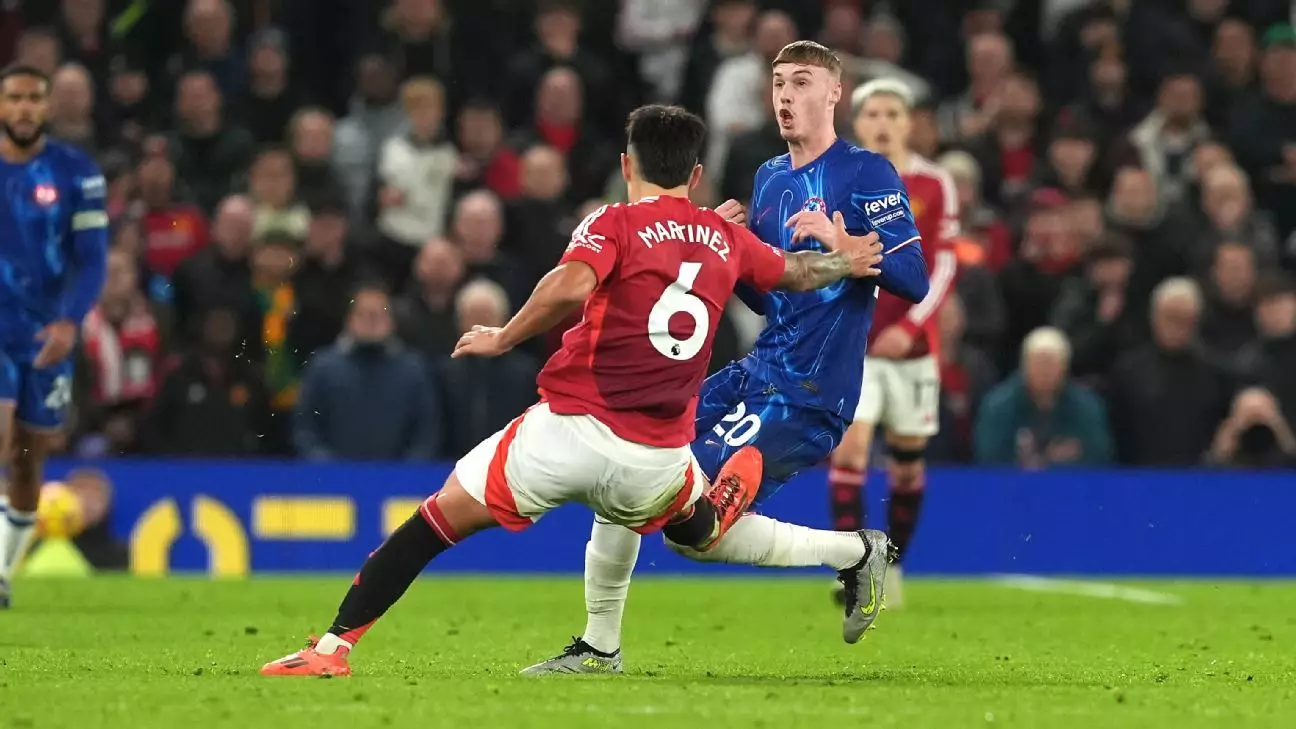The introduction of Video Assistant Referee (VAR) technology stirred considerable debate upon its arrival in the Premier League. Each matchweek, VAR continues to elicit both support and skepticism amongst fans and pundits alike as critical decisions unfold on the pitch. The week’s contentious incidents hint at the ongoing struggle to find coherency and uniformity within the framework of the game. This article will scrutinize several key moments from recent matches and analyze the implications of VAR’s operation in translating on-field decisions into the final outcomes of contests.
In the recent clash between Manchester United and Chelsea, a pivotal moment arose when United defender Lisandro Martínez fouled Cole Palmer deep into stoppage time. Referee Rob Jones initially issued a yellow card but was prompted to reconsider following a VAR review. The decision not to upgrade the card to red has left many questioning the consistency of interpretations regarding serious foul play. The prevailing threshold for VAR interventions, deemed quite high, has been a hot topic of discussion.
The crux of the matter lies in the fact that the Premier League’s criteria for a serious foul is so stringent that it often results in subjective rulings that favor the original decision made on the field. In this case, Martínez’s high challenge, albeit reckless, was not viewed as endangering Palmer’s safety enough for a red card. Interestingly, the Premier League has battled similar discrepancy issues in the past, suggesting a long-standing lack of clarity in how serious foul play is adjudicated through VAR. When the balance between taking action versus maintaining the flow of the game is so precarious, it raises important questions regarding fairness and accountability.
Crystal Palace’s near-miss late in their matchup against Wolverhampton Wanderers added to the veil of confusion surrounding VAR. After what looked like a dramatic stoppage-time goal from Jean-Philippe Mateta, the joy of the Palace fans was short-lived as referee Anthony Taylor quickly deemed a foul on the opposing goalkeeper, José Sá. The VAR saw no grounds to overturn this decision, upholding Taylor’s interpretation that Sá maintained control over the ball.
This incident not only adds to the emotional weight of the game but illustrates the ongoing battle to achieve definitive clarity on goalkeeper protection rules. Goalkeepers are granted specific privileges when they have possession, which complicates how challenges are adjudicated. Fans and players are often left frustrated, feeling that the nature of football has been compromised by overly cautious adjudication. This situation serves as a stark reminder of the intricacies and subtlety of the game which VAR struggles to address adequately.
Shifting focus to Ipswich Town, they find themselves navigating a particularly thorny relationship with VAR. The club’s recent encounters have been marred by crucial decisions that have gone against them, leaving fans and management expressing their displeasure with the technology’s apparent inconsistency. Despite the chairperson’s vocal expressions of frustration, objective analyses have validated that the VAR decisions made in Ipswich’s favor were indeed absent.
It’s crucial to understand the positioning of smaller clubs like Ipswich; they often lean on officiating interpretations that can define their season far more acutely than larger teams. The KMI Panel confirmed that the decisions against Ipswich were collectively deemed correct, yet the psychological toll of VAR’s determinations has sparked broader discussions about how smaller clubs can adapt to a system that may not yet feel equitable. The dichotomy of professional sportsmanship along with the palpable pressures inherent in promotion and relegation create an emotionally charged atmosphere that VAR does little to ameliorate.
As the seasons unfold, VAR should serve as a tool for enhancing the game, rather than a source of divisiveness among its stakeholders. The key takeaway from the recent incidents analyzed is that there exists a pressing need for the governing bodies to reassess the operational framework and guidelines under which VAR operates.
Although technology promises objectivity, the subjective nature of many fouls, coupled with high intervention thresholds, continues to breed discontent and confusion. Achieving a balance between maintaining the game’s fluidity and ensuring that meaningful penalties are assessed is no small feat. The Premier League must prioritize ongoing communication with players and fans, ensuring that the structures of VAR reflect the essential ethos of the game: fairness and clarity.
As VAR continues to operate amid swirling controversy, clubs, officials, and fans alike must engage in constructive dialogue on its efficacy and application. The technology is still young, and as it evolves, so too must the understanding of its implementation within the beloved game of football. Setting higher standards for consistency and clarity in football officiating will ultimately strengthen the league and restore trust among all participants. The road ahead may be complex, but it’s vital for the integrity of the game itself.

